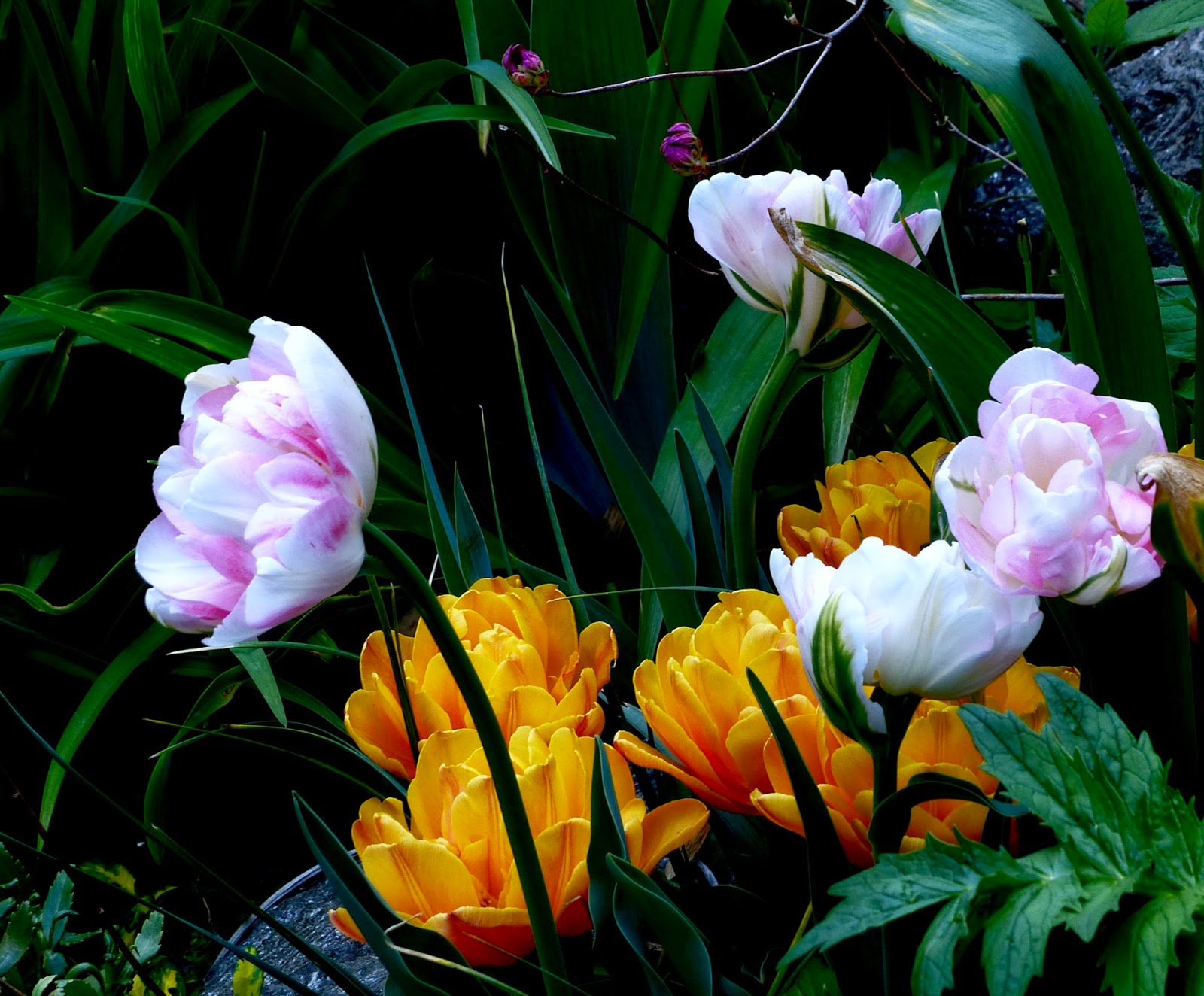If May were yet to burn away
In flower flame, both fain and fill,
I would stand here still and say,
--It stood a day. And what a day.
May it almost scary in its beauty. Sometimes it feels as if its beauty could overrun my capacity to bear it. I guess that is somewhat what Edmund Burke meant when he referred to the sublime. Some people take the sublime to mean scary as in creepy; I think it has more to do with, not scary exactly, but awesome, amazing, rapturous.
May's the month that's blooming now
I no sooner write the word,
That it seems as if it heard,
And looks up, and laughs at me."
"There is May in books for ever;
May will part with Spenser never;
May's in Milton, May's in Prior,
May's in Chaucer, Thomson, Dyer:"
"May's in all the Italian books;
She has old and modern nooks,
Where she sleeps with nymphs and elves
In happy places they call shelves,"
"And will rise , and dress your rooms
With a drapery thick with blooms."
"Come ye rains then, if you will,
May's at home and with me still:
But come rather, thou, good weather
And find us in the fields together."
.I doubt I am the only one who finds great beauty a little scary, a little other, a disruption of the ordinary even though there are few things more ordinary than spring.














No comments:
Post a Comment